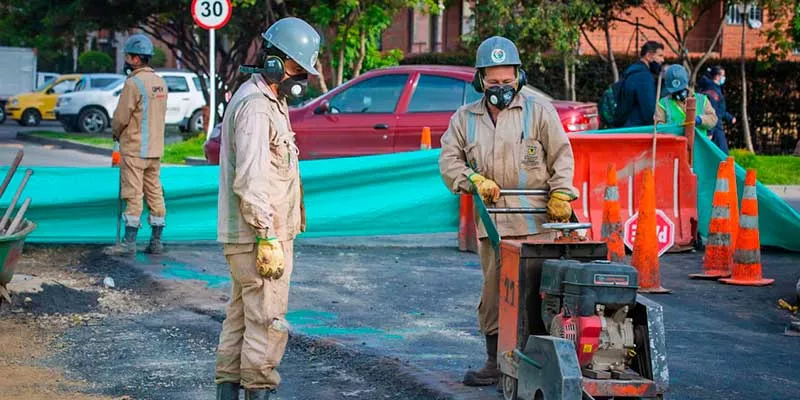The relevance of sustainability in international EPC contracts and related disputes
08 de Marzo de 2018

Edoardo Marcenaro*
Head of Legal and Corporate Affairs of Enel X S.r.l.
Applicable law and sustainability: from the “sustainable business project” and the “sustainable worksite” to the “circular economy” in Enel’s activities
In the recent years local laws have become more and more relevant during the execution of EPC Contracts for the construction of a power plant. They do not merely govern issues such as the parties’ liabilities and liquidated damages, but also apply to any other issue related to the performance of the EPC contract: they govern the relationship between the owner and the contractor, the relations between both parties, on the one side, and with the local communities, on the other side, as regards social aspects, human rights matters, protection of environment, health and safety and all other topics which are part of the so-called ‘sustainability’.
At the United Nations Sustainable Development Summit on 25 September 2015, world leaders adopted the 2030 Agenda for Sustainable Development, which includes a set of 17 Sustainable Development Goals (the so-called SDGs) to end poverty, fight inequality and injustice, tackle climate change, foster social economic development, addressing the root causes of poverty and the universal need for development that works for all people[1]. Those goals can be considered ‘shared values’. In 2011 Porter and Kramer defined the concept of ‘shared value’[2] as a management strategy focused on companies creating long–term measurable business value by identifying and addressing social problems that intersect with their business. The shared value framework creates new opportunities for companies, civil society organizations, and governments to leverage the power of market-based competition in addressing social problems[3].
Sustainability is now an integral part of multinational companies’ culture and strategy and therefore their conduct of business, including that of Enel’s.[4] It drives a process of continuous and transversal improvement within the company as well as in the local communities, being key for its mission of growth and development worldwide. Aiming at generating and distributing value on the international energy market for the benefit of customer requirements, shareholders’ investment and competitiveness of countries where it operates, Enel’s activities are aimed at getting support from local communities whereby being in tune with the environment, protecting human safety, focusing on the development of renewable sources and of technically innovative projects. The objective is to contribute to creating a better world for future generations.
Enel’s basic ethic principles, which are described in the Code of Ethics[5], are core to corporate culture and form the standard behavior requested from all the Group's employees. Furthermore, since 2003, Enel has been publishing its Sustainability Reports, making a constant commitment to maintain a close relationship with all its stakeholders: not only shareholders, investors, staff members, customers and suppliers, but also institutions, communities and future generations.
Sustainability principles also apply to EPC contracts, as the construction of a power plant, from noise and increased traffic to demolition work and raised emissions, may be carried out with far less impact on the environment and with real benefits for people who live around it. To address this, Enel has developed a new approach of ‘sustainable construction’ that respects local areas, from both an environmental and social point of view: a strong emphasis on dialogue with locals is at present contributing to create ‘shared value’ for both the local community and the company.
For this purpose, specific rules have to be inserted under the terms and conditions of the EPC Contract, in order to promote locally the creation of, e.g., long–term business initiatives, the fostering employment opportunities (either within the company or through Small Medium Enterprises, the so-called SMEs), the improvement of education and training, and the transfer of know–how in the communities where the worksite is located, with the aim of creating a full consensus therein.
From an in–house counsel’s legal perspective, the new pillars of ‘sustainable worksite’, ‘sustainable business project’ and overall ‘circular economy’ trigger a complete new approach (and mentality) in drafting, negotiating, performing EPC Contracts and in possibly managing disputes arising therefrom. The creation of shared values constitutes a new driver as important as the terms and conditions of the contract, the technical specifications, the contractual procedures to be followed in the execution phase or the strategy to be implemented in a litigation.
That having been said, an important question arise: which are the rules and regulations governing and to be compliant with? Are the local relevant laws or the general principles of international trade law as bona fide or pacta sunt servanda?
The reply is the local laws, rules and regulations, together with the EPC contract provisions and the general conditions of contract frequently incorporated therein, such as the frequently used FIDIC.
How are investments and disputes related thereto affected by sustainability?
In the last ten years, in addition to its relevance as regards applicable regulations to EPC Contracts and the performance thereof, sustainability has had another great impact on international law, i.e. determining a change of approach in the relationship between Investors/Contractors and Host States, from the very initial phase of negotiating a contract, such as an EPC Contract, to the various possible litigations arising therefrom.
The traditional attitude of investors and contractors from industrial countries in developing countries has often been defined as ‘paternalistic’. This paternalistic attitude often triggered confrontational reactions by the governmental entities of the host State, ultimately resulting in litigations in the great majority of cases. For instance, Enel had to protect its investments made in an Eastern Europe country, being defendant in various international commercial arbitrations, some of which still pending. Nowadays, the approach of both Investors/Contractors and Host States has started to change – it has become less confrontational and more cooperative.
The most significant example of this recent trend is the new solar energy scheme announced by the World Bank Group in 2015, through the program ‘Scaling Solar’, aimed at promoting access to modern alternative energy across Africa. The program should create a viable market for private solar power projects in the continent and further help local governments to increase the supply of energy for millions of residential and commercial consumers.[6]
Scaling Solar reduces the development time and uncertainty for bidders and investors, while lowering tariffs for utilities, creating at the same time remarkable benefits for all parties involved, i.e. investors, local governments and local communities. Furthermore, it provides a straightforward package to help countries determine the size and location of projects, then auction them competitively to developers. The program combines World Bank guarantees, MIGA investment guarantees, and International Finance Corporation financing to mobilize privately funded solar projects connected to the grid. It has laid down a simplified process and suite of contract templates which significantly speed the process to enable initial electricity production to begin within two years of initiating an engagement, allowing at the same time countries to rapidly and efficiently mobilize private capital into solar projects with high development impact.
Scaling Solar may be certainly considered as a first example of the new cooperative approach in most recent investments, including the EPC Contracts and the performance thereof, whereby the contractor and/or the investor play the new role of partner of the government and consequently the confrontation attitude remarkably decreases or completely disappears with a reduction of conflicts and disputes before ordinary courts or arbitral tribunals, and reduction in costs expanded on such disputes.
Conclusions
Without any doubt, local law continues to governs wide variety of the issues dealt in the above sections with respect to EPC Contracts and disputes arising therefrom: from the ‘sustainable project’ of the power plant up to the award of the arbitral tribunal or the decision of the judge. Local law is supplemented by the equally critical general terms and conditions of contract such as FIDIC, as well as general standards and principles of international trade law under the UNIDROIT Principles which may constitute a valid instrument of integration in all cases where the various national jurisdictions are silent or contradictory on a specific matter. In this respect, lawyers (starting from in–house counsel of multinational companies) play an essential role, being capable to reconcile the international, public and private laws in the performance of the contract, by way of interpretation thereof and comparison of various systems of laws and jurisdictions.
What is then the role for sustainability commitments set forth under the Sustainable Development Goals? SDGs may be considered as general guidelines playing from a legal perspective a role similar to that of lex mercatoria and UNIDROIT Principles. This is assuming that SDGs are compatible with local laws, rules and regulations on sustainability, being different from country to country.
When an investment is made in a host state, the relationship is often influenced by distrust, which should be avoided as it often leads the parties to litigation. On the one hand, by bringing capital, know-how, expertise and workload to the host state, and ultimately putting in place by all means an investment (which pursuant to Article 25 of the ICSID Convention is a pre – requisite to confirm ICSID jurisdiction), the investor is tempted to assume a paternalistic approach towards the host state’s authorities. On the other hand, the host state’s government tends to react with a confrontational attitude towards investors, thus paving the way to litigation. By contributing to establish mutual trust in investor-to-state relationships sustainability is bringing about a shift from the afore-mentioned confrontational approach to a more cooperative system of making investments. The World Bank’s Scaling Solar program well illustrates this new approach in negotiating and performing EPC Contracts where sustainable pillars are agreed well in advance amongst the parties, thus reducing the possible causes of claims and disputes during the execution of the EPC Contract and afterwards.
As a very final conclusion, sustainability brings great advantages to all players involved in the negotiation, performance of EPC Contracts and the resolution of disputes related thereto, including owners and contractors, their in–house counsel, outside lawyers and arbitrators. These advantages will materialize provided that all aforementioned players base their conduct on a set of underlying values, which should prevail over and above all other requirements and duties. Those are the values of ethics,[7] with particular reference to (i) the good faith principle set forth under most jurisdictions (and art. 1.7 of UNIDROIT Principles[8] in case of “improbable” lack of specific national provisions), as well as (ii) the principle of economy in the proceedings stated under most legislations in respect of arbitration. The aforesaid players nowadays must also take into account the concept of internal ethics, which coincide with their professional conscience. To act in accordance with internal ethics coincide with the fundamental and primary interest of safeguarding their professional reputation, especially in the small world of arbitration.[9]
* The author alone is responsible for the facts and opinions expressed in the article
[1] The SDGs may be found at UNDP, 'Official Website' <http://www.undp.org/> accessed 25 April 2017
[2] See Michael E. Porter and Mark R. Kramer, ‘Creating Shared Value’ (Harvard Business Review 62, January-February 2011); Marc W. Pfitzer, Valerie Bockstette, and Mike Stamp, ‘Innovating for Shared Value’, (Harvard Business Review 3, September 2013)
[3] See <www.sharedvalue.org>
[4] See <www.enel.com>
[5] See<www.enel.com>
[6] See Sulaimon Salau, ‘World Bank launches solar scheme to boost Africa’s power supply’ The Guardian (Nigeria, 15 February 2015) <https://guardian.ng/business-services/business/world-bank-launches-solar-scheme-to-boost-africa-s-power-supply/>.
[7] Ugo Draetta, ‘What Does “Ethics in Arbitration” Really Mean?’, (2012) 1 European International Arbitration Review 57.
[8] Article 1.7 of UNIDROIT Principles, styled “GOOD FAITH AND FAIR DEALING”, reads: “(1) Each party must act in accordance with good faith and fair dealing in international trade. (2) The parties may not exclude or limit this duty”.
[9] Ugo Draetta, ‘What Does “Ethics in Arbitration” Really Mean?’, cit., 72.







Opina, Comenta